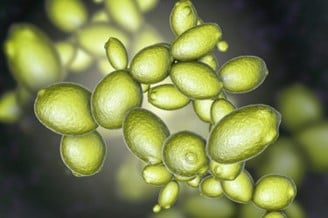
Journal Menu
► ▼ Journal Menu-
- Fermentation Home
- Aims & Scope
- Editorial Board
- Topical Advisory Panel
- Instructions for Authors
- Special Issues
- Topics
- Sections & Collections
- Article Processing Charge
- Indexing & Archiving
- Editor’s Choice Articles
- Most Cited & Viewed
- Journal Statistics
- Journal History
- Journal Awards
- Conferences
- Editorial Office
- 10th Anniversary
Journal Browser
► ▼ Journal BrowserNeed Help?
Announcements
16 October 2024
MDPI's Newly Launched Journals in September 2024
Five new journals covering a diverse range of subjects launched their inaugural issue in September 2024. Like other journals in MDPI’s portfolio, these journals are dedicated to sharing the latest research through open access, reflecting our commitment to making knowledge accessible to all.
We extend our sincere gratitude to the Editorial Board Members for their dedication to the launch and development of our new journals. Each journal will ensure its high-quality output via excellent editorial and rigorous peer-review processes so that the published articles achieve significant impact and broad visibility.
We invite you to explore and learn more about these new journals below.
| Journal | Founding Editor-in-Chief | Journal Topics (Selected) |
| Prof. Dr. Nejat Düzgüneş, University of the Pacific, USA | Editorial | view inaugural issue | biological therapy and stem-cell therapy; drug therapy; chemotherapy; radiation and other nonsurgical therapeutic strategies | view journal scope | submit an article | |
| Prof. Dr. Magda Tsolaki, Greek Federation of Alzheimer’s Disease, Greece; Aristotle University of Thessaloniki, Greece | Editorial | view inaugural issue | surgical/procedural complications; complications; perioperative adverse events; postoperative adverse events | view journal scope | submit an article | |
| Prof. Dr. Steven R. Fassnacht, Colorado State University, USA; Cooperative Institute for Research in the Atmosphere, USA | Editorial | view inaugural issue | ice as a mineral; atmospheric ice; sea ice; freshwater ice; ice sheets; ice caps and ice shelves | view journal scope | submit an article | |
| Dr. Francisco Epelde, Hospital Universitari Parc Tauli, Spain; University Autonoma of Barcelona, Spain | Editorial | view inaugural issue | hospital management; hospital facilities; hospital services; hospital risk management; health law | view journal scope | submit an article | |
| Prof. Dr. Nicola Ferri, University of Padova, Italy | Editorial | view inaugural issue | lipids in cells and whole organisms; lipid structure and function; lipid products and processes; dietary lipids and nutrition | view journal scope | submit an article |
We wish to thank everyone who has supported the development of open access publishing. You are welcome to send an application here or contact the New Journal Committee (newjournal-committee@mdpi.com) if you would like to create more new journals.
15 October 2024
MDPI Webinar | World Food Day Webinar 2024, 16 October 2024

In celebration of World Food Day 2024, MDPI is launching a special webinar to encourage researchers to unite, take action, and showcase how collective knowledge can address the pressing challenges of food security, sustainable agriculture, and resource management.
World Food Day, led by the Food and Agriculture Organization of the United Nations (FAO), aims to foster awareness about the importance of food security and the urgent need to eradicate hunger worldwide. In line with this mission, our upcoming webinar invites researchers and experts to discuss innovative solutions for achieving sustainable agriculture, improving resource management, and tackling food insecurity worldwide.
We are very much looking forward to seeing you at MDPI World Food Day Webinar 2024. Please find below an up-to-date outline of the presenters.
Date: 16 October 2024 at 01.30 p.m. CEST | 7:30 a.m. EDT | 7:30 p.m. CST Asia
Webinar ID: 835 7950 1147
Webinar Secretariat: journal.webinar@mdpi.com
After registering, you will receive a confirmation email containing information on how to join the webinar. Registrations with academic institutional email addresses will be prioritized.
Unable to attend? Register anyway and we will inform you when the recording is available.
Register now for free!
| Speaker/Presentation | Time in CEST | Time in EDT |
| MDPI Introduction | 1:30 p.m.–1:40 p.m. | 7:30 a.m.–7:40 a.m. |
| Prof. Dr. Giorgia Spigno Valorisation of Food Residues for the Food Industry: Opportunities and Challenges |
1:40 p.m.–2:10 p.m. | 7:40 a.m.–8:10 a.m. |
| Prof. Dr. Ramakrishnan Ramanathan Technological Approaches for Reducing Food Waste |
2:10 p.m.–2:40 p.m. | 8:10 a.m.–8:40 a.m. |
| Q&A Session | 2:40 p.m.–2:55 p.m. | 8:40 a.m.–8:55 a.m. |
| Closing of Webinar | 2:55 p.m.–3:00 p.m. | 8:55 a.m.–9:00 a.m. |
Keynote Speakers:
- Prof. Dr. Giorgia Spigno, Department for Sustainable Food Process, Department for Sustainable Food Process, Università Cattolica del Sacro Cuore, Piacenza, Italy;
- Prof. Dr. Ramakrishnan Ramanathan, Department of Management, College of Business Administration, University of Sharjah, Sharjah, United Arab Emirates.
10 October 2024
Fermentation | Highly Cited Papers and Hot Topic Special Issues on Fermentation Process Design in 2022–2023
We are delighted to share some highly cited papers in the Section “Fermentation Process Design” that were published in Fermentation (ISSN: 2311-5637) in 2022 and 2023. In addition, some Special Issues in this Section are currently open for submissions. The following is a list of the articles and Special Issues that may be of interest to you:
Articles:
1. “Waste-Derived Renewable Hydrogen and Methane: Towards a Potential Energy Transition Solution”
by Omprakash Sarkar, Jampala Annie Modestra, Jampala Annie Modestra, Paul Christakopoulos and Leonidas Matsakas
Fermentation 2023, 9(4), 368; https://doi.org/10.3390/fermentation9040368
Available online: https://www.mdpi.com/2311-5637/9/4/368
2. “Effects of Solid-State Fermentation on the Standardized Ileal Digestibility of Amino Acids and Apparent Metabolizable Energy in Peanut Meal Fed to Broiler Chickens”
by Shuzhen Li, Chong Li, Si Chen, Xiaoying Wang, Jinmei Liu, Xuejuan Deng, Huiyi Cai and Guohua Liu
Fermentation 2023, 9(4), 346; https://doi.org/10.3390/fermentation9040346
Available online: https://www.mdpi.com/2311-5637/9/4/346
3. “Integration of Corn and Cane for Ethanol Production: Effects of Lactobacilli Contamination on Fermentative Parameters and Use of Ionizing Radiation Treatment for Disinfection”
by Ana Paula Maria da Silva, Pietro Sica, Lucas de Almeida Nobre Pires, Liandra Spironello, Layna Amorim Mota, Gustavo Theodoro Peixoto, Rubens Perez Calegari, Thiago Olitta Basso, Aldo Tonso, Marcelo Pego Gomes et al.
Fermentation 2023, 9(2), 89; https://doi.org/10.3390/fermentation9020089
Available online: https://www.mdpi.com/2311-5637/9/2/89
4. “Repeated-Batch Ethanol Fermentation from Sweet Sorghum Stem Juice under a Very High Gravity Condition Using a Stirred Tank Bioreactor Coupled with a Column Bioreactor by Immobilized Saccharomyces cerevisiae”
by Benjaporn Sriputorn, Lakkana Laopaiboon and Pattana Laopaiboon
Fermentation 2023, 9(2), 159; https://doi.org/10.3390/fermentation9020159
Available online: https://www.mdpi.com/2311-5637/9/2/159
5. “Production of Pigments under Submerged Culture through Repeated Batch Fermentation of Immobilized Talaromyces atroroseus GH2”
by Juan Pablo Ruiz-Sánchez, Lourdes Morales-Oyervides, Daniele Giuffrida, Laurent Dufossé and Julio César Montañez
Fermentation 2023, 9(2), 171; https://doi.org/10.3390/fermentation9020171
Available online: https://www.mdpi.com/2311-5637/9/2/171
6. “Scale-Up of Pigment Production by the Marine-Derived Filamentous Fungus, Talaromyces albobiverticillius 30548, from Shake Flask to Stirred Bioreactor”
by Mekala Venkatachalam, Gary Mares, Laurent Dufossé and Mireille Fouillaud
Fermentation 2023, 9(1), 77; https://doi.org/10.3390/fermentation9010077
Available online: https://www.mdpi.com/2311-5637/9/1/77
7. “Highly Active Astaxanthin Production from Waste Molasses by Mutated Rhodosporidium toruloides G17”
by Tuyet Nhung Tran, Ngoc-Tri Tran, Thu-Anh Tran, Dinh-Chuong Pham, Chia-Hung Su, Hoang Chinh Nguyen, Colin J. Barrow and Dai-Nghiep Ngo
Fermentation 2023, 9(2), 148; https://doi.org/10.3390/fermentation9020148
Available online: https://www.mdpi.com/2311-5637/9/2/148
8. “Statistical Medium Optimization for the Production of Anti-Methicillin-Resistant Staphylococcus aureus Metabolites from a Coal-Mining-Soil-Derived Streptomyces rochei CMB47”
by Ibtissem Djinni, Warda Djoudi, Chahinaz Boumezoued, Halima Barchiche, Samiha Souagui, Mouloud Kecha and Ines Mancini
Fermentation 2023, 9(4), 381; https://doi.org/10.3390/fermentation9040381
Available online: https://www.mdpi.com/2311-5637/9/4/381
9. “Dual Emerging Applications of Solid-State Fermentation (SSF) with Aspergillus niger and Ultrasonic-Assisted Extraction (UAE) for the Obtention of Antimicrobial Polyphenols from Pineapple Waste”
by Sarah L. Paz-Arteaga, Edith Cadena-Chamorro, Liliana Serna-Cock, Harlen Torres-Castañeda, Omar V. Pabón-Rodríguez, Carlos E. Agudelo-Morales, Nathiely Ramírez-Guzmán, Juan A. Ascacio-Valdés, Cristóbal N. Aguilar and Cristian Torres-León
Fermentation 2023, 9(8), 706; https://doi.org/10.3390/fermentation9080706
Available online: https://www.mdpi.com/2311-5637/9/8/706
10. “Biosynthesis of Nicotinamide Mononucleotide: Current Metabolic Engineering Strategies, Challenges, and Prospects”
by Shiqi Luo, Juntao Zhao, Yangyang Zheng, Tao Chen and Zhiwen Wang
Fermentation 2023, 9(7), 594; https://doi.org/10.3390/fermentation9070594
Available online: https://www.mdpi.com/2311-5637/9/7/594
Special Issues:
1. “Applications of Computer Science and AI to Fermented Foods and Beverages”
Edited by Dr. Bernard Chen
Submission deadline: 31 March 2025

2. “Optimization and Analysis of the Fermentation Process for Microbial Products: 2nd Edition”
Edited by Dr. Xidong Ren
Submission deadline: 31 January 2025

3. “Computer and Mathematical Simulation of Microbial Fermentations: The Choice of Models, Parameter Estimation and Applications”
Edited by Dr. Nicolai S. Panikov
Submission deadline: 30 January 2025

4. “The Development of Anaerobic Digestion Systems”
Edited by Dr. Yeqing Li
Submission deadline: 31 December 2024

5. “Fermentation Processes: Modeling, Optimization and Control: 2nd Edition”
Edited by Dr. Ricardo Aguilar-López
Submission deadline: 31 December 2024

6. “Modeling, Control and Optimization of Wine Fermentation”
Edited by Prof. Dr. André Knoesen and Prof. Dr. Roger Boulton
Submission deadline: 30 December 2024

4 October 2024
MDPI INSIGHTS: The CEO's Letter #16 - UNGA79 Science Summit, OASPA, Peer Review Week

Welcome to the MDPI Insights: The CEO's Letter.
In these monthly letters, I will showcase two key aspects of our work at MDPI: our commitment to empowering researchers and our determination to facilitating open scientific exchange.
Opening Thoughts

MDPI Joins the Science Summit at UNGA79 (23–27 September 2024, New York)
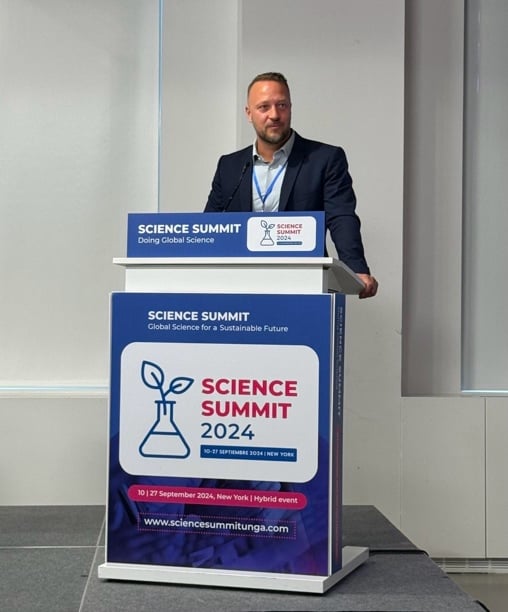
On Friday 27 September, I had the privilege of giving the opening talk at the “Youth at the Science Summit” panel during the Science Summit conference, held in New York at the 79th session of the United Nations General Assembly (UNGA). Together, we discussed the future of science, publishing, innovation, and sustainable development.
It was a great opportunity to learn from our young leaders, whose voices must be included in the conversation as science shapes the future of artificial intelligence, climate mitigation, healthcare, technology, and more. This was also a powerful reminder of how essential global collaboration is in solving the major challenges we face. I left inspired by the dedication of these young researchers to making the world a better place!
Today’s youth are not just the leaders of tomorrow – they are already leading the change today.
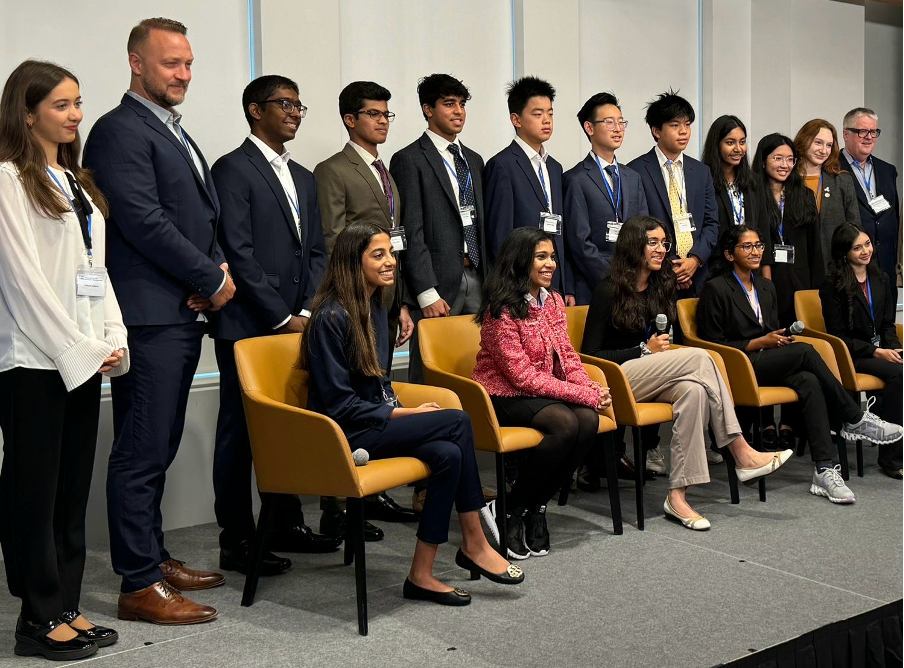
Stefan Tochev (second from left) at the UNGA Science Summit 2024: “A great opportunity to learn from our young leaders.”
MDPI Supports the Future Generation of Scientists
This aligns with MDPI’s mission to support the next generation of scientists and early-career researchers by recognizing their achievements through our various MDPI awards, including the Young Investigator Awards, Best PhD Thesis Awards, Travel Awards, and more.
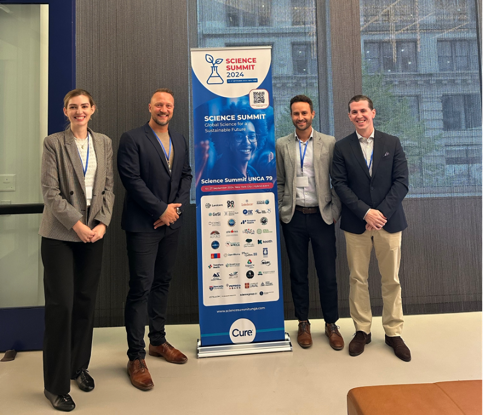
Our presence at this global event showed our commitment to advancing Open Science as a key driver for sustainable development. As a leading Open Access (OA) publisher, MDPI’s role at the summit was to emphasize the critical importance of democratizing scientific knowledge, making it accessible to all, and promoting global collaboration.
Through OA publishing, we aim to address pressing global challenges such as climate change, public health, and inequality, in line with the United Nations Sustainable Development Goals (SDGs).
“We aim to address pressing global challenges”
MDPI and the SDGs
In 2020, the SDG Publishers Compact was launched to accelerate implementation of the SDGs by promoting content that informs, develops, and inspires action. MDPI joined this initiative in 2021 and subsequently launched the MDPI SDG Hub in 2022, offering free access to recent research within the scope of each of the 17 SDGs.
During the summit, we highlighted the connection between Open Science and the SDG Publishers Compact, supporting the core objective to “Leave No One Behind” (LNOB). The transformative promise of the SDGs relies heavily on the Open Access model, which serves as a fundamental enabler of Open Science. We advocate for the wider adoption of Open Science practices in order to achieve the SDGs by 2030.
Impactful Research
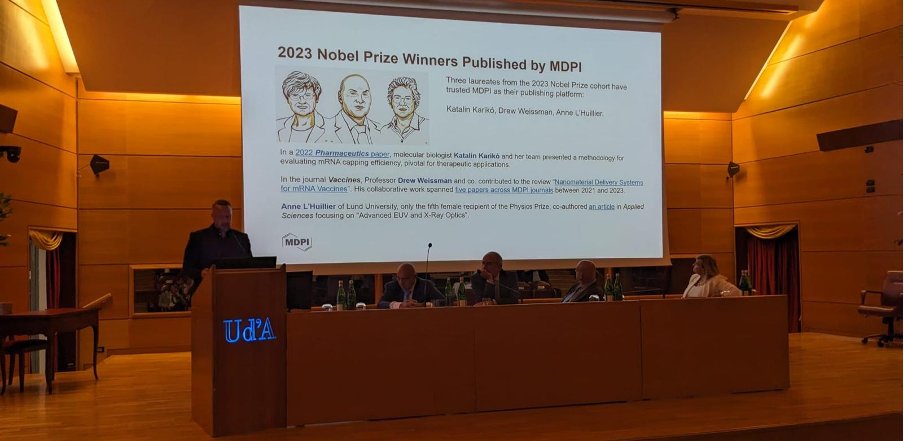
Presenting at the 1st International Conference of Environmental Medicine
In September, MDPI and our journals IJERPH and Diseases sponsored and participated in the 1st International Conference of Environmental Medicine: Environmental Threats to Human Health: From Genetics to Epigenetics, held in Chieti, Italy.
The conference was organized in collaboration with various societies, including the Italian Society of Environmental Medicine (SIMA), one of more than 160 societies partnering MDPI journals.
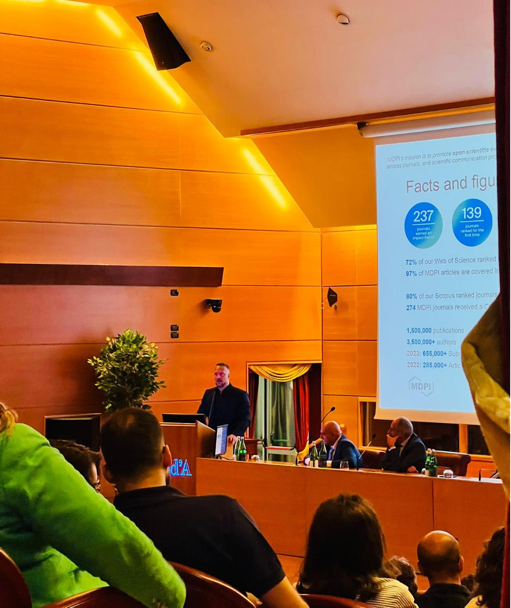
The conference brought together influential figures from the Italian scholarly community, such as Antonio Felice Uricchio (President of the National Agency for University Research Assessment [ANVUR]), Alessandro Miani (President of SIMA), and Liborio Stuppia (Director of ‘Gabriele d’Annunzio’ University of Chieti-Pescara), among others.
MDPI was the sole publishing sponsor of the conference, at which I had the opportunity to present on behalf of the company. I provided an overview of MDPI, covering key facts and figures, the peer-review process, our strong collaboration with the Italian market, and insights into Nobel Prize winners who have published with MDPI, ahead of Sir Richard Roberts’ Nobel lecture.
“As at September 2024, 44 Nobel laureates have contributed to over 115 articles across 35 MDPI journals”

The keynote speaker at the event was Sir Richard Roberts, Nobel Laureate and 1993 Nobel Prize winner in Medicine, recognized for his discovery of split genes.
Nobel Laureates’ Contributions to MDPI
As at September 2024, 44 Nobel laureates have contributed to over 115 articles across 35 MDPI journals. I’ll share more details on this in the October newsletter.
Hosting such prominent figures in their respective fields, who play a significant role in advancing the OA movement, of which we are leaders in, resonates deeply with our editorial teams.
Sponsoring and supporting academic conferences is something we do on a large scale, and it continues to grow. Attending and speaking about MDPI shows our commitment by taking the time to connect with the scholarly community in person.
MDPI’s Presence in Italy
Italy ranks third globally in total MDPI publications, with nearly 130,000 contributions. We collaborate with about 12,000 Editorial Board Members in Italy, over 6,100 of whom have an H-index of more than 25.
We have 83 Editors-in-Chief and 209 Section Editors-in-Chief from Italy. We also support 20 Italian universities through our Institutional Open Access Program (IOAP) agreements with major institutions such as Sapienza University of Rome, the University of Milan, and the University of Pisa, among others.
Inside MDPI

Celebrating Peer Review Week, 23–27 September 2024
As we conclude another productive month at MDPI, I am pleased to highlight our participation in this year’s Peer Review Week (PRW), which took place from 23–27 September 2024. This global, community-driven celebration underscores the vital importance of peer review in maintaining the integrity and reliability of academic work. PRW provide a platform for institutions, publishers, and scholars to come together and reflect on the processes that uphold the quality of scholarly communication.
“We remain committed to enhancing the peer review process”
The theme for PRW 2024 was ‘Innovation and Technology in Peer Review.’ At MDPI, we were proud to contribute through various online and in-person events, including webinars from Europe, Asia-Pacific, and a roundtable discussion on innovation and technology in peer review. These events offer an opportunity to explore new tools and technologies that are shaping the future of peer review, particularly the integration of AI. As a company, we remain committed to enhancing the peer review process with innovative solutions while preserving the essential human expertise that makes it effective.
Peer Review Innovation and Technology at MDPI
Our efforts to improve peer review extend beyond the activities of this week. We also released a blog article discussing New Tools for Advancing Research Integrity and Peer Review, where we highlight two tools that MDPI has developed to support research integrity: Eureka – Reviewer Recommender and Online Proofreader. We are continually refining SuSy, our in-house submission system, to provide a seamless experience for authors and reviewers alike.
Listening to MDPI’s Authors and Reviewers
We highly value the time of our reviewers, and so do the authors who contribute to our journals. Our editorial process is bolstered by a network of dedicated reviewers, a team of over 6,000 diligent, well-trained staff members, and an in-house article submission platform designed to ensure efficient processes.
We make it a point to continually improve the experiences of both our authors and our reviewers throughout the entire editorial process, from submission to publication. This is why we regularly ask for feedback by conducting surveys. Here is what some of our respondents recently had to say about working with MDPI:
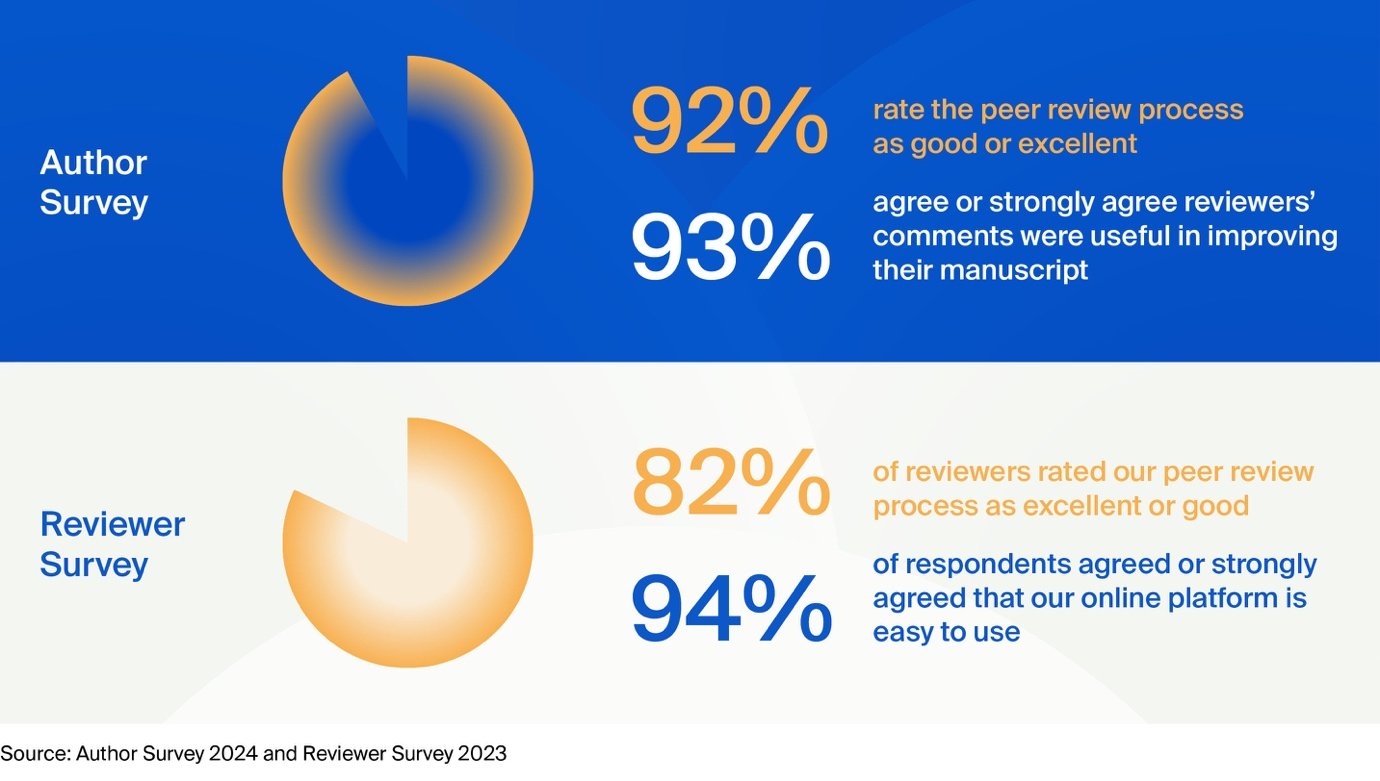
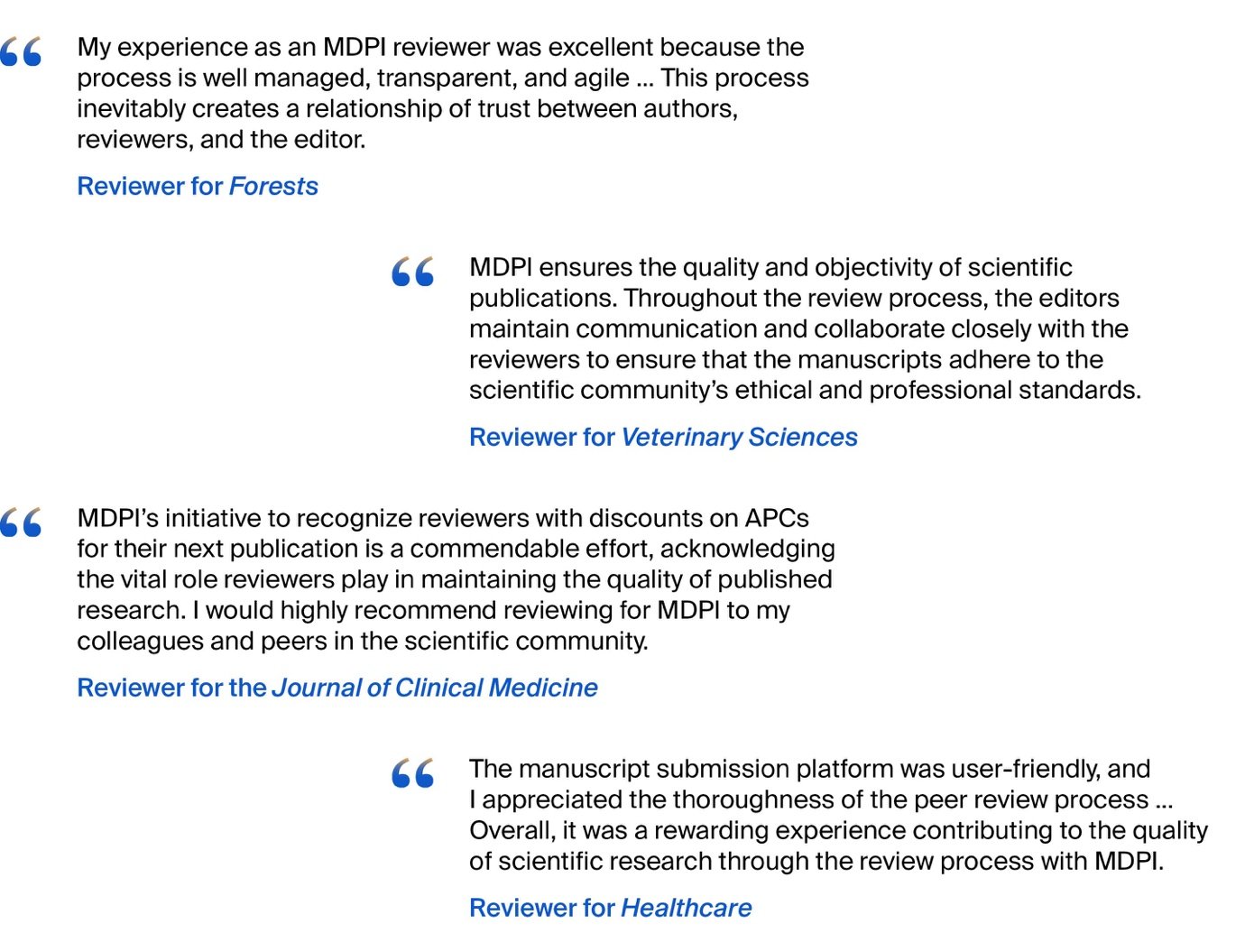
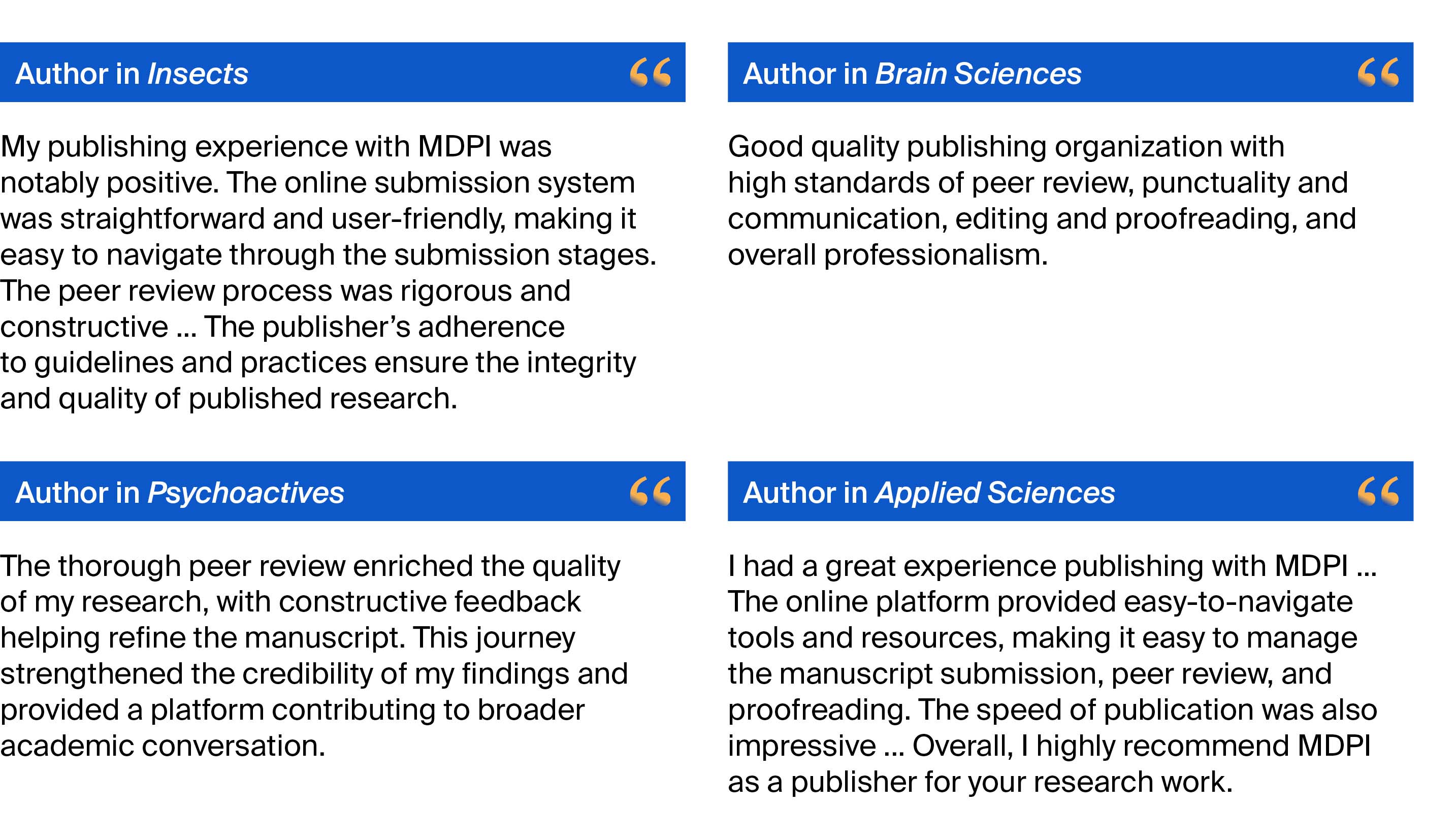
Coming Together for Science

ICM 2024 – Advances in Material Innovation
I am pleased to share that we held The 5th International Conference on Materials: Advances in Material Innovation (ICM 2024) in Basel, Switzerland this past 25–27 September.
This intimate event brought together leading scientists, researchers, and industry experts to exchange insights on recent advancements in materials characterization, processing, and manufacturing. Key focus areas included nanotechnology in material sciences and engineering, optical, electrical, and magnetic materials, soft, biological, and biomaterials, fibres, membranes, thin films, sensing materials, as well as materials and devices for energy and solar fuels. In addition, discussions featured the integration of AI and machine learning in materials research.
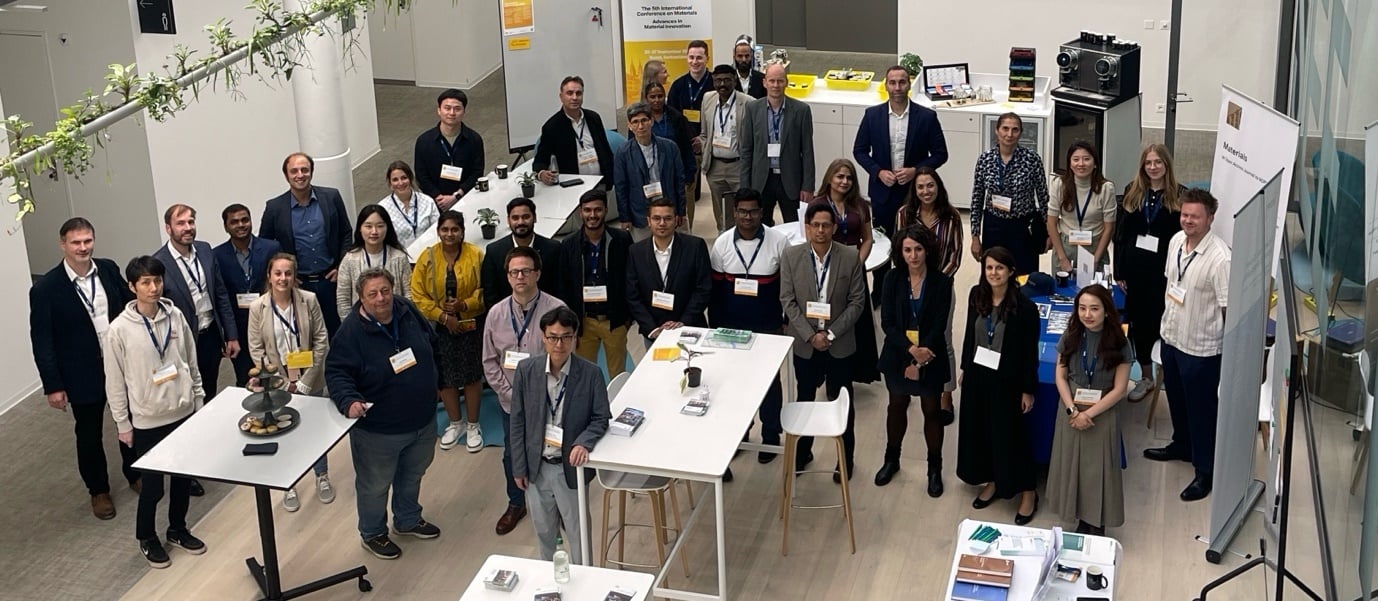
We received 90 abstract submissions. Over the course of the three-day event, 18 posters were displayed, and 34 talks were delivered, including three plenary speeches, seven invited talks, and 24 selected oral presentations.
A special thank-you to our partnering societies The Polish Membrane Society and The North American Thermal Analysis Society, as well as our sponsor, Nanomegas, for their support of the ICM conference. I am also pleased to share that we presented three awards, including the Best Presentation Award and two Best Poster Awards, recognizing the outstanding contributions of our participants.
Upcoming In-Person Event
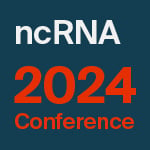
7–9 October 2024
Non-coding RNA World 2024: Exploring Mechanisms, Designing Medicines
Location: Basel, Switzerland
ncRNA 2024 will explore the latest advances in the field, covering topics from basic biology to medical and technological applications.
Find more upcoming MDPI events here.
Closing Thoughts
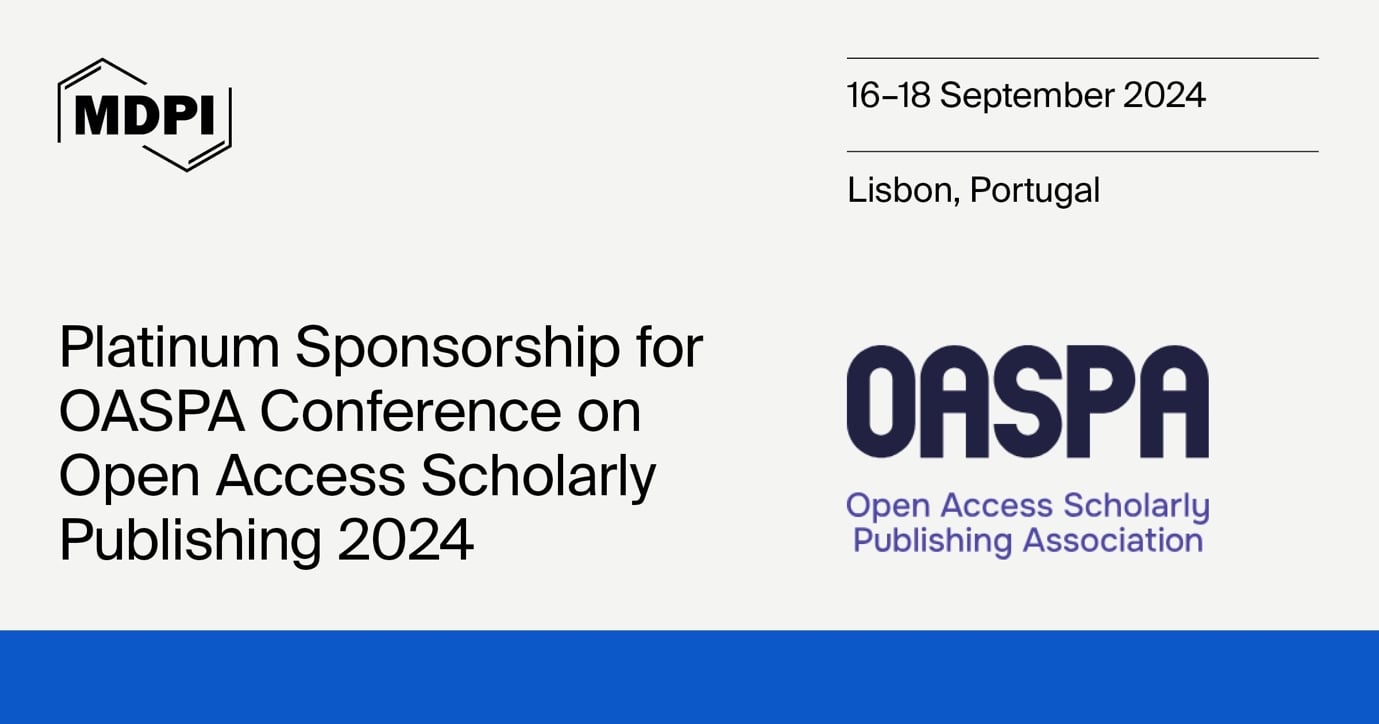
Reflections from OASPA 2024 Conference in Lisbon (16–18 September)
Amidst my September travels, I also had pleasure of attending the OASPA 2024 Conference in Lisbon from 16–18 September. It’s the first in-person Open Access Scholarly Publishing Association (OASPA) event in five years, and being in the sunny city of Lisbon made it even better! MDPI has long been a member of OASPA, and attending this conference gave us an opportunity to connect with other key members of the organization to see the latest developments in the OA movement.
“I believe that publishers have a lot to offer in terms of data and insights”
Main Themes from OASPA 2024
The main themes covered were equity and inclusivity, diamond OA, AI and openness, OA books, research integrity, and how OA can address broader societal challenges such as climate change. While it was great to see the latest developments in these areas, it was also clear that certain voices were missing, particularly those of major publishers. Although it’s not easy to incorporate every perspective, I believe that publishers, including MDPI, have a lot to offer in terms of data and insights. During the membership meeting, a few of us raised the point that large-scale publisher input could add value to these discussions.
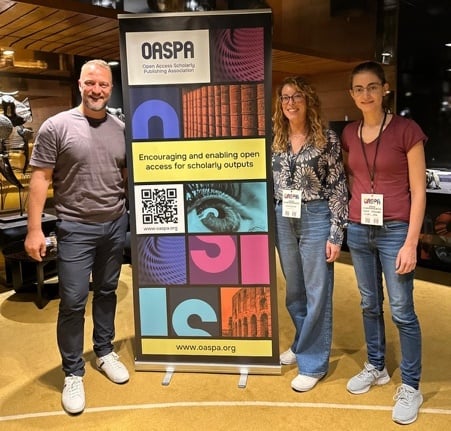
It’s important to participate in industry conferences such as OASPA in order to be part of the discussions and remain at the forefront of the OA movement.
It’s an opportunity to build meaningful relationships with organizations that share our commitment to OA.
While sponsorship is one way to show our support, it’s clear that being part of the conversation through participating in the OASPA groups and committee is what really makes a difference.
It took the last 20 years for more than 50% of the world's research to be published via open access. This provides a sobering reminder that flipping the remaining 50% will be a big challenge.
An important takeaway for me was that there is no "one-size-fits-all" solution for OA challenges: different regions and different stakeholders need different forms of support, whether it is infrastructure, funding, education, or policy, for example. I also enjoyed Rebecca Ross' presentation on how OA can drive action on climate. A few panellists shared the need for transparency in the peer-review process, advocating for open review reports, which is something we have been offering since 2014.
Speaking of openness, we are excited to celebrate Open Access Week 2024 with the scholarly community from 21–27 October. I look forward to sharing a recap of our activities in the next newsletter.
Chief Executive Officer
MDPI AG
29 September 2024
MDPI New Journal Proposal—Invitation to Shape the Future of Open Science Together

As a leader in open access publishing, MDPI is eager to explore new collaboration opportunities, including the launch of new journals and the transfer of existing ones. At present, MDPI publishes over 400 journals, more than 160 of which have established partnerships with academic organizations. Additionally, we publish 19 association journals.
In order to enhance exchange and cooperation with scientific researchers and share the results of open science, MDPI invites experts and scholars from various fields to submit proposals for new journal collaboration opportunities. If your proposal is approved, you could take on the role of Editor-in-Chief, Deputy Editor-in-Chief, or Editorial Board Member of the journal. This position allows you to manage the manuscript review process alongside our editorial department, participate in calls for papers, strengthen your network with scholars in the field, expand scientific research cooperation, enhance your personal and academic influence internationally, and play a leading role in academia.
Once the new journal is online, MDPI will provide a variety of promotional channels to market the journal internationally.
MDPI will offer various promotional channels to enhance its visibility and promote it internationally.
How can you determine the theme of a new journal?
- Assess research hotspots/academic frontiers;
- Assess pioneers in the field/key research directions of universities;
- Determine whether MDPI has already established a journal in the field.
You can browse MDPI’s existing journals at the following link: https://www.mdpi.com/about/journals.
Advantages of collaborating with MDPI:
- MDPI is a global leader in open-access publishing with extensive academic resources.
- MDPI offers a professional publishing team that provides comprehensive support throughout the publishing process.
- MDPI’s diverse promotional platforms and channels help journals quickly increase their international visibility and influence.
We invite you to submit new journal proposal here, and contribute to academic development! In addition, if your institution (university, institute, college, national key laboratory, society, etc.) intends to establish a journal, you can also submit a draft to MDPI on its behalf.
29 September 2024
Meet Us at the Fifth National Conference on Food Biotechnology, 26–27 October 2024, Shanghai, China

MDPI journals will be attending the Fifth National Conference on Food Biotechnology as exhibitors. This conference will be held in Shanghai, China, from 26 to 27 October 2024.
This conference focuses on artificial intelligence and biotechnology used to drive the high-quality development and new quality productivity of the food industry. The conference aims to bring together the wisdom of experts, scholars and industry representatives in the field of food biotechnology and cross-cutting areas, covering the cutting-edge hotspots, subversive technologies and development directions in this field and promoting the cross-fertilization of biotechnology and the food industry based on the intelligent base of artificial intelligence.
The following MDPI journals will be represented:
If you are attending this conference, please feel free to start a conversation with us. Our delegates look forward to meeting you in person and answering any questions you may have.
27 September 2024
MDPI’s 2023 Travel Awards—Winners Announced

MDPI journals frequently grant travel awards to empower junior researchers to showcase their latest research at academic conferences, thereby amplifying their impact within their research fields.
We extend our heartfelt congratulations to the 103 recipients of MDPI's 2023 Travel Awards from different countries and territories for their exceptional presentations. These outstanding individuals were selected by the journal editors based on the strength of their research proposals and the anticipated impact of their presentations at academic conferences. We commend their exceptional contributions and wish them continued success in their academic endeavors.
MDPI will continue to provide support and recognition to the academic community. To learn more about the list of awardees, please visit the following pages:
- Biology and Life Sciences;
- Chemistry and Materials Sciences;
- Engineering;
- Environmental and Earth Sciences;
- Medicine and Pharmacology;
- Public Health and Healthcare;
- Others.
About MDPI Awards:
To reward the academic community, especially young researchers, and enhance communication among scientists, MDPI journals regularly offer various awards to researchers in specific fields. These awards, serving as a source of inspiration and recognition, help raise the influence of talented individuals who have been credited with outstanding achievements and are making a significant contribution to the advancement of their fields.
To explore more MDPI awards, please click here.
11 September 2024
MDPI’s 2023 Best PhD Thesis Awards—Winners Announced

MDPI’s Best PhD Thesis Awards are granted to promising young scholars whose PhD theses are deemed exceptional within their respective research fields. These awards aim to encourage young scholars to continue their outstanding accomplishments and further contribute to their field.
We extend our heartfelt congratulations to the 54 winners of the 2023 Best PhD Thesis Awards and wish them success with their future research endeavors.
MDPI will continue to provide support and recognition to the academic community. To learn more about all the awardees and their research projects in your field of study, please visit the following pages:
About MDPI Awards:
To reward the academic community, especially young researchers, and enhance communication among scientists, MDPI journals regularly offer various awards to researchers in specific fields. These awards, serving as a source of inspiration and recognition, help raise the influence of talented individuals who have been credited with outstanding achievements and are making a significant contribution to the advancement of their fields.
To explore more MDPI awards, please click here.
10 September 2024
Fermentation | Highly Cited Papers and Hot Topic Special Issues in 2022–2023 from the “Industrial Fermentation” Section
We are delighted to share some highly cited papers from the Section “Industrial Fermentation” that were published in Fermentation (ISSN: 2311-5637) in 2022 and 2023. In addition, some Special Issues in this Section are currently open for submission. The following is a list of articles and Special Issues that may be of interest to you.
1. “Valorization of Brewers’ Spent Grains: Pretreatments and Fermentation, a Review”
by Sara Mitri, Sarah-Joe Salameh, Anissa Khelfa, Estelle Leonard, Richard G. Maroun, Richard G. Maroun and Mohamed Koubaa
Fermentation 2022, 8(2), 50; https://doi.org/10.3390/fermentation8020050
Available online: https://www.mdpi.com/2311-5637/8/2/50
2. “Improve Enzymatic Hydrolysis of Lignocellulosic Biomass by Modifying Lignin Structure via Sulfite Pretreatment and Using Lignin Blockers”
by Caoxing Huang, Ruolin Li, Wei Tang, Yayue Zheng and Xianzhi Meng
Fermentation 2022, 8(10), 558; https://doi.org/10.3390/fermentation8100558
Available online: https://www.mdpi.com/2311-5637/8/10/558
3. “Single Cell Protein Production through Multi Food-Waste Substrate Fermentation”
by Alessia Tropea, Antonio Ferracane, Ambrogina Albergamo, Angela Giorgia Potortì, Vincenzo Lo Turco and Giuseppa Di Bella
Fermentation 2022, 8(3), 91; https://doi.org/10.3390/fermentation8030091
Available online: https://www.mdpi.com/2311-5637/8/3/91
4. “Impact of Natural Degradation on the Aged Lignocellulose Fibers of Moroccan Cedar Softwood: Structural Elucidation by Infrared Spectroscopy (ATR-FTIR) and X-ray Diffraction (XRD)”
by Yousra Bouramdane, Somia Fellak, Fouad El Mansouri and Abdellatif Boukir
Fermentation 2022, 8(12), 698; https://doi.org/10.3390/fermentation8120698
Available online: https://www.mdpi.com/2311-5637/8/12/698
5. “The Potential of Marine Microalgae for the Production of Food, Feed, and Fuel (3F)”
by Chandan Mahata, Probir Das, Shoyeb Khan, Mahmoud I. A. Thaher, Mohammed Abdul Quadir, Mohammed Abdul Quadir and Hareb Al Jabri
Fermentation 2022, 8(7), 316; https://doi.org/10.3390/fermentation8070316
Available online: https://www.mdpi.com/2311-5637/8/7/316
6. “Enzymatic Hydrolysis Strategies for Cellulosic Sugars Production to Obtain Bioethanol from Eucalyptus globulus Bark”
by Mariana S. T. Amândio, Jorge M. S. Rocha and Ana M. R. B. Xavier
Fermentation 2023, 9(3), 241; https://doi.org/10.3390/fermentation9030241
Available online: https://www.mdpi.com/2311-5637/9/3/241
7. “Microalgal Feedstock for Biofuel Production: Recent Advances, Challenges, and Future Perspective”
by Shoyeb Khan, Probir Das, Mohammed Abdul Quadir, Mahmoud Ibrahim Thaher, Chandan Mahata, Sami Sayadi and Hareb Al-Jabri
Fermentation 2023, 9(3), 281; https://doi.org/10.3390/fermentation9030281
Available online: https://www.mdpi.com/2311-5637/9/3/281
8. “Anaerobic Digestion of Lignocellulosic Biomass: Substrate Characteristics (Challenge) and Innovation”
by Christy E. Manyi-Loh and Ryk Lues
Fermentation 2023, 9(8), 755; https://doi.org/10.3390/fermentation9080755
Available online: https://www.mdpi.com/2311-5637/9/8/755
9. “Potential and Restrictions of Food-Waste Valorization through Fermentation Processes”
by Mariana Ortiz-Sanchez, Mariana Ortiz-Sanchez, Andrés Felipe Alzate-Ramírez and Carlos Ariel Cardona Alzate
Fermentation 2023, 9(3), 274; https://doi.org/10.3390/fermentation9030274
Available online: https://www.mdpi.com/2311-5637/9/3/274
10. “Effects of Temperature Shifts on Microbial Communities and Biogas Production: An In-Depth Comparison”
by Gede Adi Wiguna Sudiartha, Tsuyoshi Imai, Chonticha Mamimin and Alissara Reungsang
Fermentation 2023, 9(7), 642; https://doi.org/10.3390/fermentation9070642
Available online: https://www.mdpi.com/2311-5637/9/7/642
Special Issues:
1. “Biotechnological Valorization Approaches for Food Waste”
Guest Editor: Alessia Tropea
Submission deadline: 28 February 2025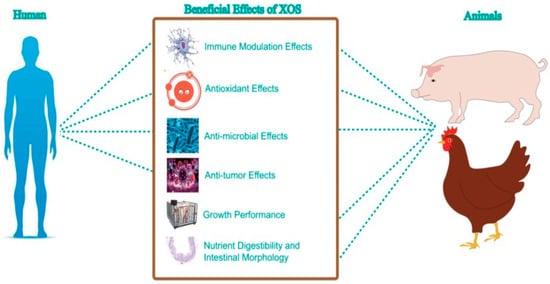
2. “Algae Biotechnology for Biofuel Production and Bioremediation”
Guest Editor: Toshiyuki Takahashi
Submission deadline: 30 November 2024
3. “Microbial and Enzymatic Degradation of Plastics”
Guest Editor: David B. Levin
Submission deadline: 30 December 2024
4. “Microbial Biorefineries: 2nd Edition”
Guest Editors: Teresa Lopes Da Silva and Alberto Delgado Dos Reis
Submission deadline: 15 December 2024
5. “Energy Converter: Anaerobic Digestion, 2nd Edition”
Guest Editor: Liang Yu
Submission deadline: 31 December 2024

6. “Research with Clostridium Species in Biofuel and Biochemical Product Production”
Guest Editor: Thaddeus Ezeji
Submission deadline: 15 December 2024 
9 September 2024
Fermentation | Highly Cited Papers and Hot Topic Special Issues on Microbial Metabolism, Physiology & Genetics in 2022–2023
We are delighted to share some highly cited papers in the Section “Microbial Metabolism, Physiology & Genetics” that were published in Fermentation (ISSN: 2311-5637) in 2022–2023. In addition, some Special Issues in this Section are currently open for submission. The following is a list of articles and Special Issues that may be of interest to you.
1. “Lipase from Yarrowia lipolytica: Prospects as an Industrial Biocatalyst for Biotechnological Applications”
by Jessica Lopes da Silva, Misael Bessa Sales, Viviane de Castro Bizerra, Millena Mara Rabelo Nobre, Ana Kátia de Sousa Braz, Patrick da Silva Sousa, Antônio L. G. Cavalcante, Rafael L. F. Melo, Paulo Gonçalves De Sousa Junior, Francisco S. Neto et al.
Fermentation 2023, 9(7), 581; https://doi.org/10.3390/fermentation9070581
Available online: https://www.mdpi.com/2311-5637/9/7/581
2. “Advances in Komagataella phaffii Engineering for the Production of Renewable Chemicals and Proteins”
by Clara Vida Galrão Corrêa Carneiro, Luana Assis Serra, Thályta Fraga Pacheco, Letícia Maria Mallmann Ferreira, Lívia Teixeira Duarte Brandão, Mariana Nogueira de Moura Freitas, Débora Trichez and João Ricardo Moreira de Almeida
Fermentation 2022, 8(11), 575; https://doi.org/10.3390/fermentation8110575
Available online: https://www.mdpi.com/2311-5637/8/11/575
3. “Microalgae and Cyanobacteria Biomass Pretreatment Methods: A Comparative Analysis of Chemical and Thermochemical Pretreatment Methods Aimed at Methane Production”
by Maria C. de Oliveira, Isabelli D. Bassin and Magali C. Cammarota
Fermentation 2022, 8(10), 497; https://doi.org/10.3390/fermentation8100497
Available online: https://www.mdpi.com/2311-5637/8/10/497
4. “Yeasts as Producers of Flavor Precursors during Cocoa Bean Fermentation and Their Relevance as Starter Cultures: A Review”
by Hugo Gabriel Gutiérrez-Ríos, Mirna Leonor Suárez-Quiroz, Zorba Josué Hernández-Estrada, Olaya Pirene Castellanos-Onorio, Rodrigo Alonso-Villegas, Patricia Rayas-Duarte, Cynthia Cano-Sarmiento, Claudia Yuritzi Figueroa-Hernández and Oscar González-Rios
Fermentation 2022, 8(7), 331; https://doi.org/10.3390/fermentation8070331
Available online: https://www.mdpi.com/2311-5637/8/7/331
5. “Production of Gamma-Aminobutyric Acid by Levilactobacillus brevis CD0817 by Coupling Fermentation with Self-Buffered Whole-Cell Catalysis”
by Haixing Li, Tianyi Sun, Mengya Jia, Lingqin Wang, Cheng Wei, Jinfeng Pei, Zhiyu Lin and Shuixing Wang
Fermentation 2022, 8(7), 321; https://doi.org/10.3390/fermentation8070321
Available online: https://www.mdpi.com/2311-5637/8/7/321
6. “Development of a Microalgae-Based Continuous Starch-to-Hydrogen Conversion Approach”
by Bettina Hupp, Bernadett Pap, Attila Farkas and Gergely Maróti
Fermentation 2022, 8(7), 294; https://doi.org/10.3390/fermentation8070294
Available online: https://www.mdpi.com/2311-5637/8/7/294
7. “Dynamic Variations in Rumen Fermentation Characteristics and Bacterial Community Composition during In Vitro Fermentation”
by Xiao Wei, Kehui Ouyang, Tanghui Long, Zuogui Liu, Yanjiao Li and Qinghua Qiu
Fermentation 2022, 8(6), 276; https://doi.org/10.3390/fermentation8060276
Available online: https://www.mdpi.com/2311-5637/8/6/276
8. “Biosynthesis and Production of Class II Bacteriocins of Food-Associated Lactic Acid Bacteria”
by Tingting Zhang, Yu Zhang, Lin Li, Xiuqi Jiang, Zhuo Chen, Fan Zhao and Yanglei Yi
Fermentation 2022, 8(5), 217; https://doi.org/10.3390/fermentation8050217
Available online: https://www.mdpi.com/2311-5637/8/5/217
9. “Effects of Microbial Inoculation with Different Indigenous Bacillus Species on Physicochemical Characteristics and Bacterial Succession during Short-Term Composting”
by Jiayu Niu and Xiufen Li
Fermentation 2022, 8(4), 152; https://doi.org/10.3390/fermentation8040152
Available online: https://www.mdpi.com/2311-5637/8/4/152
10. “High-Gossypol Whole Cottonseed Exhibited Mediocre Rumen Degradability and Less Microbial Fermentation Efficiency than Cottonseed Hull and Cottonseed Meal with an In Vitro Gas Production Technique”
by Weikang Wang, Qichao Wu, Wenjuan Li, Yanlu Wang, Fan Zhang, Liangkang Lv, Shengli Li and Hongjian Yang
Fermentation 2022, 8(3), 103; https://doi.org/10.3390/fermentation8030103
Available online: https://www.mdpi.com/2311-5637/8/3/103
Special Issues:
1. “Pigment Production in Submerged Fermentation: Second Edition”
Guest Editors: Mekala Venkatachalam and Laurent Dufossé
Submission deadline: 31 May 2025
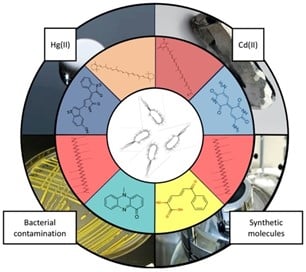
2. “Yarrowia lipolytica: A Beneficial Yeast as a Biofactory for Biotechnological Applications: 3rd Edition”
Guest Editor: Bartłomiej Zieniuk
Submission deadline: 31 January 2025

3. “New Research on Strains Improvement and Microbial Biosynthesis, 2nd Edition”
Guest Editors: Penka Petrova and Kaloyan Petrov
Submission deadline: 31 January 2025

4. “Feature Review Papers in Microbial Metabolism, Physiology & Genetics, 2nd Edition”
Guest Editor: Ronnie Willaert
Submission deadline: 31 December 2025
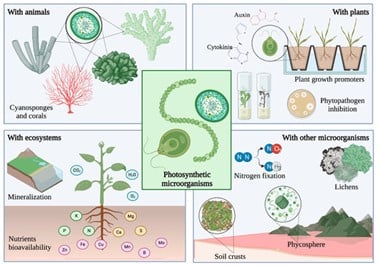
5. “Natural Product Heterologous Biosynthesis in Engineered Microorganisms”
Guest Editors: Hui Li and Yibin Qiu
Submission deadline: 30 December 2024

6. “Saccharomyces cerevisiae Strains and Fermentation: 2nd Edition”
Guest Editor: Chiara Nadai
Submission deadline: 31 December 2024
